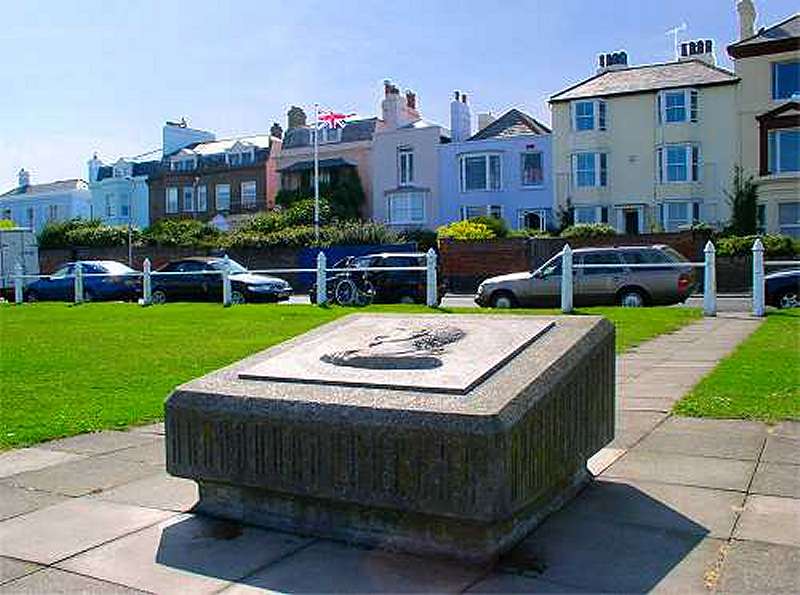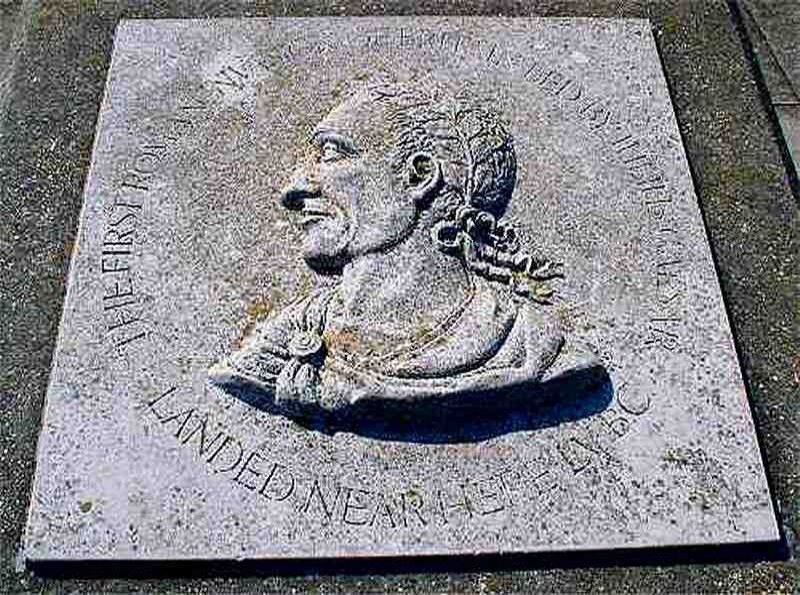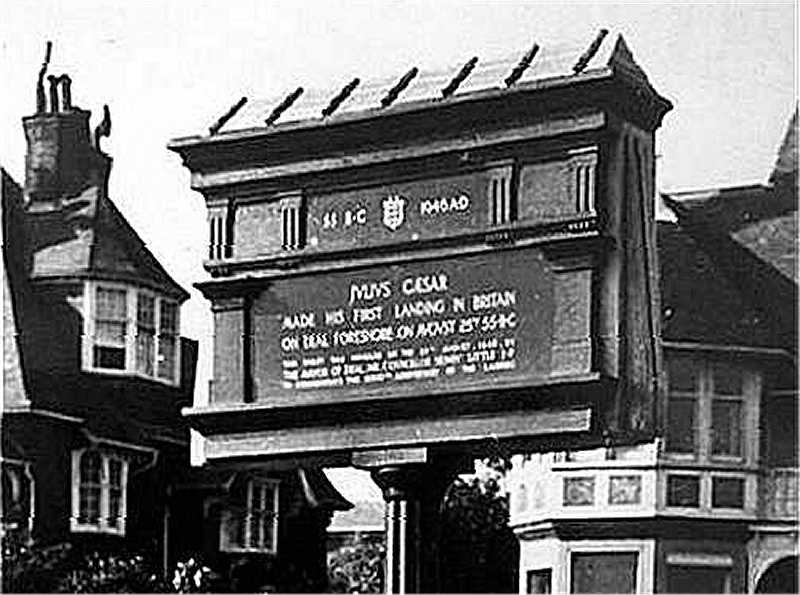Historians believe that Julius Caesar's decision to invade Britain was fueled by desire to expand the Roman Empire and to deal with troublesome native tribes in Gaul (today's northern France) and Britain. The first invasion - on 26 August 55 BC - saw Julius Caesar and a flotilla of vessels sailing along the channel coast. Dover and its cliffs were dismissed and the open shore of today's Walmer beach was selected as a suitable landing point. The heavily armed Roman troops gathered on the beach and fought their way inland, eventually overcoming the local Britons.
The success was shortlived when, four nights later, a violent storm seriously damaged much of the Roman fleet. Repairs completed and fearing more bad weather, Caesar and his fleet returned to Gaul.
 |
 |
| Caesar memorial plaque on Walmer beach | Caesar memorial plaque on Walmer beach |
 |
 |
| Bust of Julius Caesar in the Vatican Museums | Pre-war seafront memorial recording Caesar's landing |
Lessons had been learned from the first invasion and Caesar ordered new ships with a greater beam and less draught making them more suitable for landing on the foreshore of Deal. About 600 were built and Caesar's second invading force of about 17,000 soldiers and 2,000 cavalry, set out from Boulogne at sunset in July 54 BC. The next morning the invaders were close to the beach near Deal. Having landed, Caesar's army marched about 12 miles inland to defeat the native forces.
Once again, bad weather intervened. A violent storm had damaged Caesar's fleet with 40 completely wrecked. With repairs underway, Caesar resumed his invasion, marching inland towards London and defeating strong resistance from the native Britons. The price for defeat included hostages and an annual tribute. Caesar returned to Gaul in mid-September. He never returned to Britain and his two invasions may be regarded as reconnaisance missions that established some political and trading links. Permanent conquest of Britain was only accomplished by Emperor Claudius in AD43.For more on Julius Caesar, the early Roman Invasion and the Roman Conquest of Britain...
The Landing of Julius Caesar (on the White Cliffs
Country website's Heritage Fact Sheets):
http://80.168.49.251/website003/visitor_
information/heritage_factsheets/the_landing _of_julius_caesar.aspx
Biography of Julius Caesar (on Wikipedia): http://en.wikipedia.org/wiki/Julius_Caesar
Caesar's invasions of Britain (on Wikipedia): http://en.wikipedia.org/wiki/Caesar's_ invasions_of_Britain
Roman conquest of Britain (on Wikipedia): http://en.wikipedia.org/wiki/Roman_ conquest_of_Britain
News item: "Council Supports Idea of New Julius Caesar Memorial" (in WalmerWeb news archive for January-June 2008 - see item for June 2 2008) www.walmerweb.co.uk/.../news-archive2008a.html